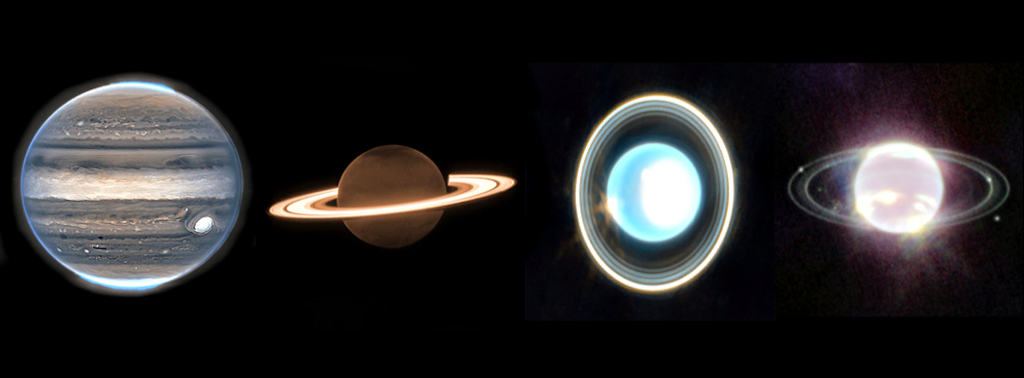| Week of |
Topic |
Chapter(s) |
Tests |
Celestial Events
|
| 8/26,28,30 |
Syllabus. Survey of Universe. Powers of 10. |
1 |
Survey |
E0 Welcomefest (8/25) |
| 9/2 |
LABOR DAY BREAK |
|
|
|
| 9/4,6 |
Naked Eye Universe - the Celestial Sphere |
1 |
quiz 1 |
|
| 9/9,11,13 |
Daily, monthly, yearly cycles |
1 |
quiz 2 |
E1 Saturn Opp. (9/8) |
| 9/16,18,20 |
Moon and eclipses |
1,2 |
quiz 3 |
E2 Nova watch, Neptune Opp. |
| 9/23,25,27 |
Copernican Revolution |
2 |
|
Fall Equinox (9/22) |
| 9/30,10/2,4 |
Copernican Rev., Solar system physics |
2 |
Exam I |
New Moon/eclipse |
| 10/7,9,11 |
Light and spectroscopy |
3,4 |
quiz 4 |
Draconid meteors 10/7 |
| 10/14-15 |
FALL BREAK |
|
|
|
| 10/16,18 |
The Sun |
16 |
|
E3 Comet C/2023 A3 |
| 10/21,23,25 |
Solar System Overview |
6 |
quiz 5 |
Orionid Meteors (10/21-22) |
| 10/28,30,11/1 |
Earth |
7 |
|
|
| 11/4,6,8 |
Moon, Mercury, Venus |
8,9 |
Exam II |
Taurid Meteors, Jupit. Opp (11/3) |
| 11/11,13,15 |
Venus, Mars |
9,10 |
|
E4 Supermoon, Merc |
| 11/18,20,22 |
Jovian planet atmospheres |
11-13 |
|
|
| 11/25-29 |
THANKSGIVING BREAK |
|
|
|
| 12/2,4,6 |
Jovian planet atmospheres / Moons |
11-13 |
quiz 6 |
|
| 12/9,11,13 |
Jovian Moons and Rings |
11-13 |
|
E5 Geminids |
| 12/16 (Mon) |
Comprehensive FINAL at 9:15-11:15 AM, usual classroom. |
_ |
Final exam. |
Geminid meteors |
